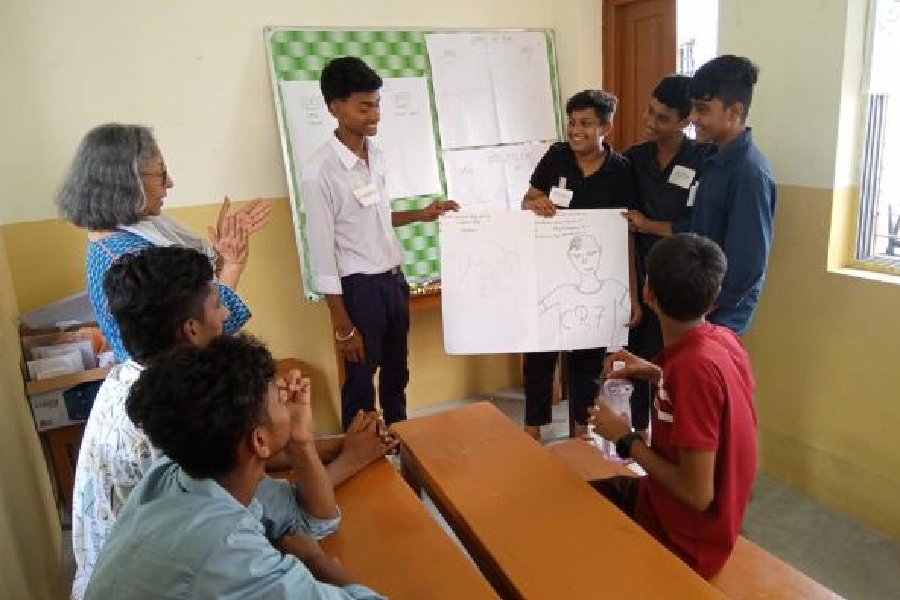Boys who live in slums and are used to seeing violence against women around them are being sensitised about gender equity.
Some of them normalise the violence on women that they see and need to be sensitised against it, said a psychologist for the NGO working with the boys.
Patriarchy makes them a victim, too, the boys are being told during the sessions. It makes them a victim by trapping them in societal expectations and carrying out responsibilities, said the resource person who conducts the workshop with the boys.
Many of these boys, much before they turn adults, are expected to earn a living and share the financial burden of the family.
The sessions are for boys in the age group of 10 to 20 years.
“The younger you catch them the more you can influence them. If we sensitise them we can have a generation of gender-sensitive boys,” said Malika Singh, a consultant for gender mainstreaming who conducts the sessions.
The NGO — Calcutta Rescue — surveyed both girls and boys to understand their views on violence against women and gender discrimination.
The first survey was conducted in November 2021 followed by the second in March 2023.
Some of the problems that emerged after the second survey were that boys were more tolerant of violence against women and they had certain gendered expectations from girls and boys that perpetuate patriarchal stereotypes.
“We conducted the same survey on both girls and boys and noticed that compared to girls the attitude of boys is still more gendered. There has been an improvement in their gender attitudes but they still have to be sensitised. For example, they are more tolerant of violence on women than girls are,” said Suchandra Chatterjee, the school psychologist at Calcutta Rescue.
Some of the questions to which they had to respond to were:
- Boys lose respect if they talk about their problems
- It is bothersome when boys behave like girls
- A woman should tolerate violence to keep her family together
- Girls like to be teased by boys
“Certain beliefs of masculinity and stereotypes are deeply ingrained in the minds of boys and they have internalized it. To break those stereotypes or influence them otherwise, boys need more sessions or time than girls,” said Chatterjee.
The sessions are not just monologues from the resource person to the boys but engage them in activities that help them express themselves or their emotions.
“The boys are trapped in certain stereotypes. They have to be strong, they have to look after the family or their sisters, and they have a limited scope of expressing their feelings and limited choices in fashion, too. Once we establish with them how patriarchy makes them a victim, they start understanding,” said Singh.
Chatterjee said they also address them about early marriage and teenage pregnancy where the expectation of looking after or providing for the wife is theirs, which could be at the cost of giving up their studies and a life of their own.











